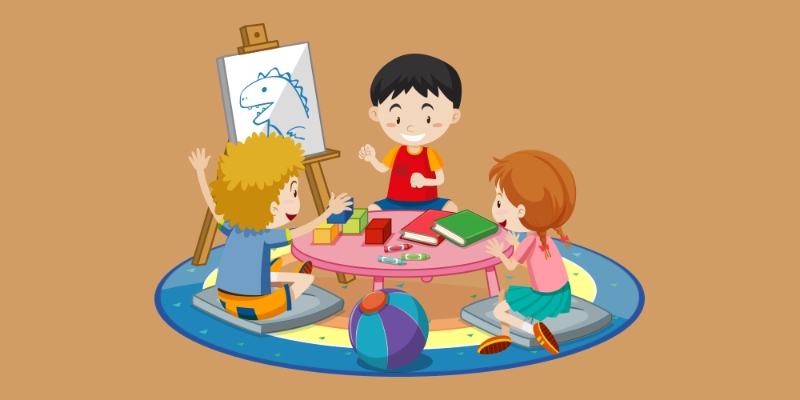
The mind receives excellent exercise with the help of memory games. The human brain, like a muscle, becomes stronger with regular exercise.
Memory games improve brain function, reading comprehension, logic, and attention spans. Humans “train the tissue” of attention by practising it frequently, which any successful brain game demands.
Let us look at seven fun memory games for students for the cognitive development of children .
Also Read, Book Synopsis: The whole brain child
Table of Contents
- Why do Memory Games Matter for Kids?
- Fifteen Memory Games For Kids
- 1. The Rhyming Word Game
- 2. The Memory Word Game
- 3. The Missing Item Memory Game
- 4. The Money Memory Game
- 5. The Memory Train
- 6. The Storytelling Game
- 7. Word List Matching Game
- 8. The Memory Card Game
- 9. The Magic Cup Game
- 10. Sound Chain Game
- 11. The Tray Game
- 12. Spot the Difference
- 13. Flash Card Game
- 14. Simon Says
- 15. Picture Bingo
- Conclusion
Why do Memory Games Matter for Kids?
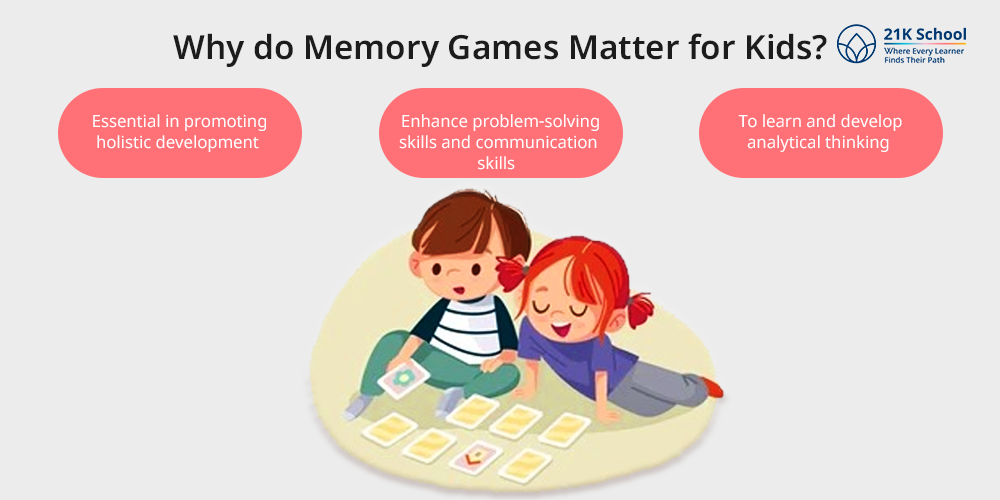
Memory games are very essential in promoting holistic development among children.
Memory games are essential for kids because they help in enhancing cognitive skills like focus, memory and attention while providing an entertaining and engaging educational experience.
Memory games stimulate brain processes that are critical for both academic success and overall development.
These games are a great way to learn and develop analytical thinking. Memory games help to enhance problem-solving skills and communication skills , through which students can communicate with others without any limitations.
Various types of short-term and long-term memory games allow students to grasp the concepts and fundamentals more easily through fun learning activities.
Fifteen Memory Games For Kids
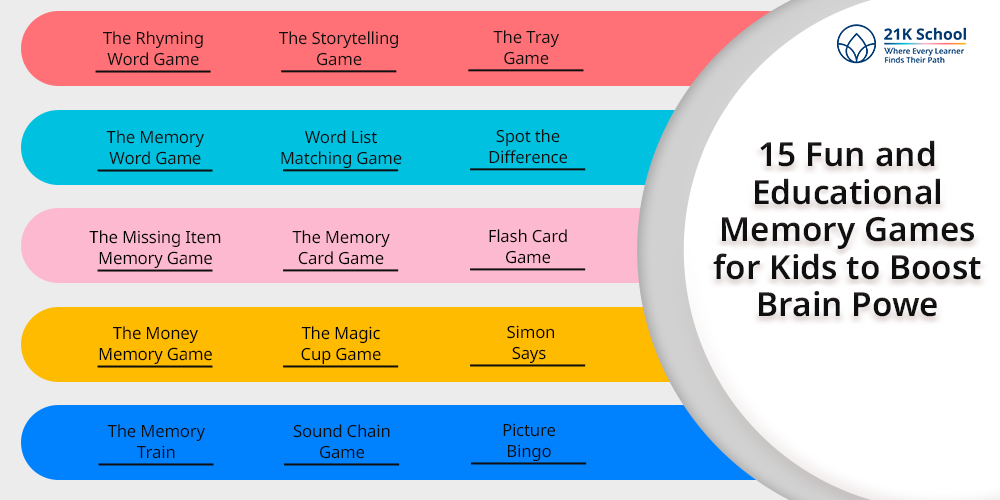
1. The Rhyming Word Game
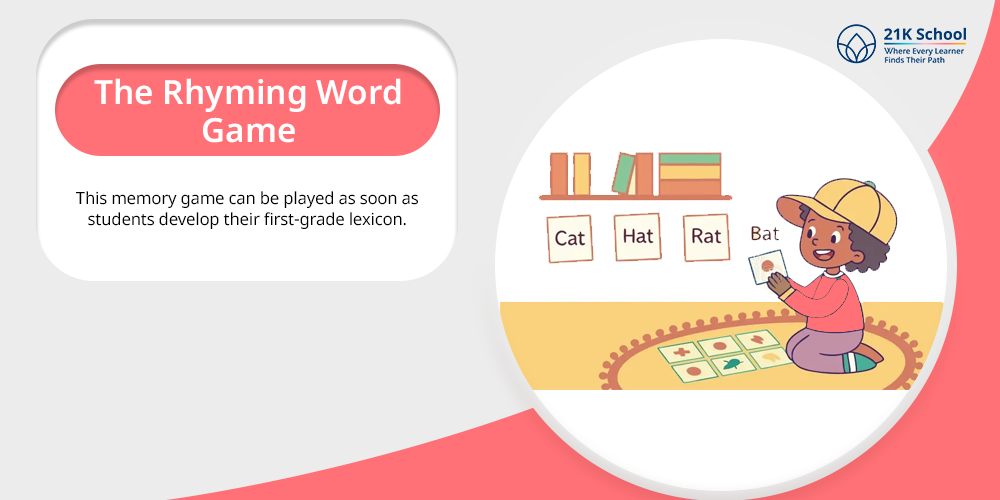
This memory game can be played as soon as students develop their first-grade lexicon.
- State a brief statement at the outset, emphasizing one word in specific. For instance, “You need to have a bat to play sports.”
- The subsequent participant responds by reiterating the word “bat” and including a rhyme. They might say, “Bat, cat,” for instance.
- As the game progresses, participants repeat each rhymed word and add a new one. The third participant will utter “Bat, cat,” followed by an additional term, such as “hat,” and so forth.
2. The Memory Word Game
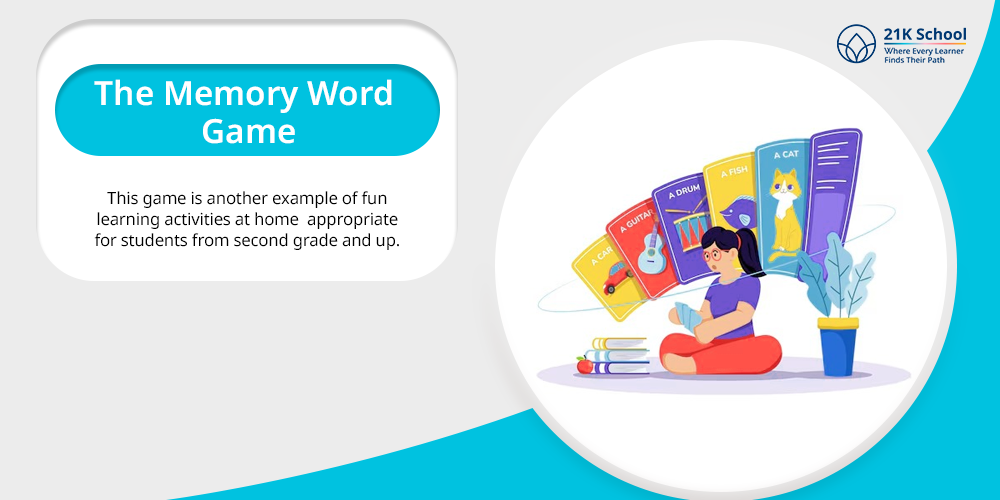
This game is another example of fun learning activities at home appropriate for students from second grade and up.
- Write a list of words in a specific order on a large piece of paper. Put that listing up where everybody can access it.
- Inform the learners that they must remember the exact word order.
- Cover the list once everyone has had a chance to memorize the words and the sequence.
- Request that the students list the terms on a worksheet in the sequence they occurred.
3. The Missing Item Memory Game
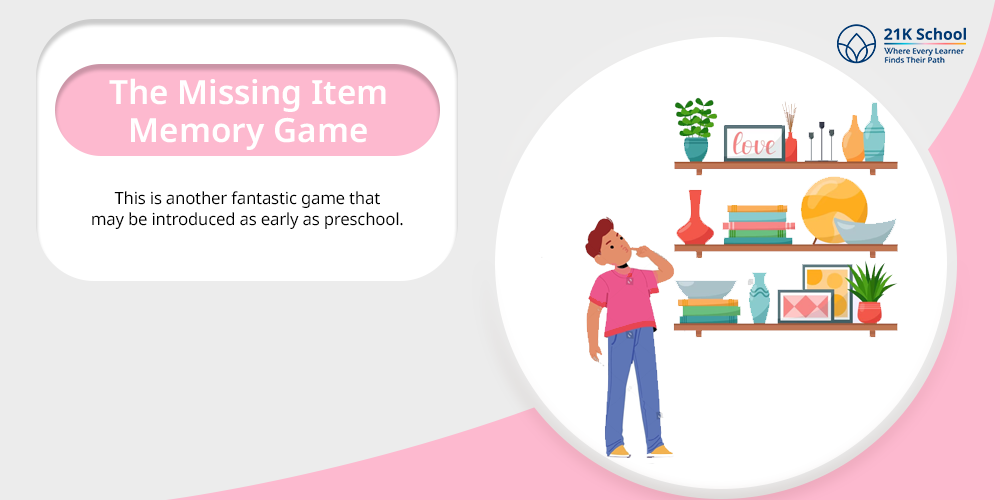
This is another fantastic game that may be introduced as early as preschool.
- Arrange everyday objects on a tray, such as keys, a pen, lipstick, and a spoon.
- Permit the students to examine the materials.
- Choose how long you want the person to focus on the tray. Younger children may require more time than older ones.
- Cover the tray and stealthily take out one of the things when the time has expired.
- Ask the kids what is missing.
- Anyone who can name the missing item will receive a small gift.
4. The Money Memory Game
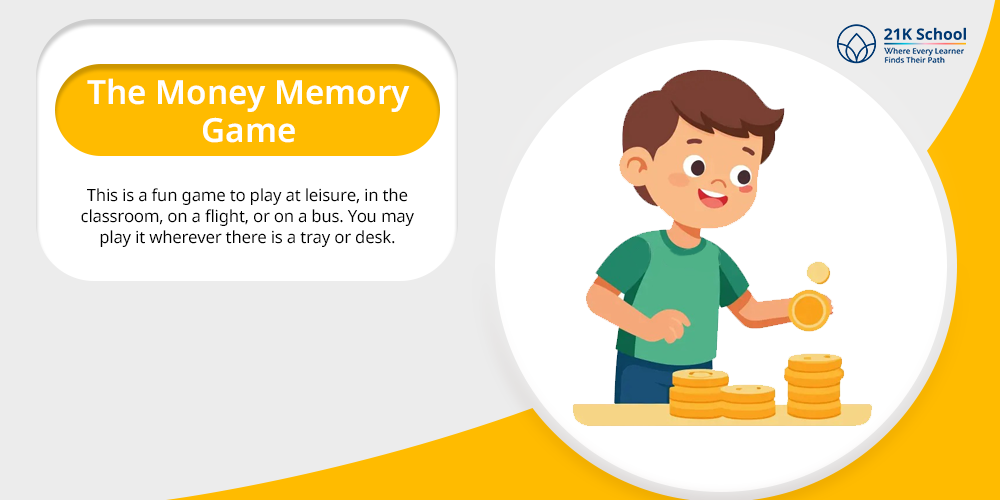
This is a fun game to play at leisure, in the classroom, on a flight, or on a bus. You may play it wherever there is a tray or desk. You might think about starting this game in the first grade as parents and teachers train kids about money.
- Gather a variety of coins for the competitors and yourself.
- On a tray, spread out some coins.
- Place the coins in a specific order, such as three cents on top, four nickels below, and one-half at the bottom.
- Once the setup is complete, inform the players of the placement and order. Allow them time to read it over.
- Hide or take out the coins.
- The players must place the same coins in the same arrangement from their selection of coins as they did on the tray.
- By changing the order of the coins, this game could go on forever!
5. The Memory Train
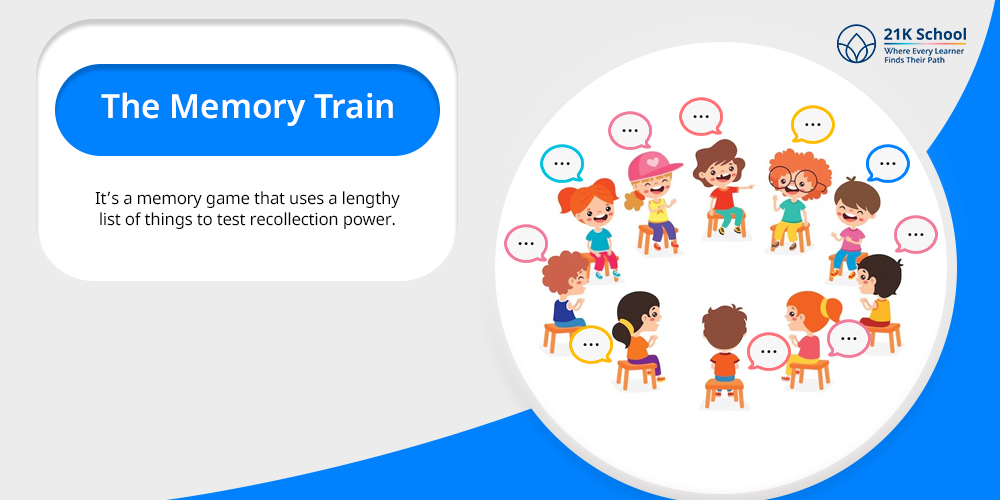
This one is a standard game that can be used as pupils’ memories improve. A perfect moment to introduce this masterpiece into the curriculum is in the third or fourth grade. It’s a memory game that uses a lengthy list of things to test recollection power.
- To begin the game, say, “I’m packing my luggage since I’m taking a vacation. I’m going to”
- Pick the first few options. Maybe you’ll say, “I’m preparing my suitcase because I’m taking a vacation. Take my toothbrush, please.”
- The individual after you must reiterate the introduction and your item and then add one of their own. So they’ll say, “I’m organising my suitcase because I’m taking a vacation. I’m bringing my jammies and toothbrush.”
- The items already mentioned will be repeated by each player, along with any new ones. Players are eliminated if they can’t recall or identify the incorrect item.
- The rest of the players carry on until there is just one remaining at the end, and that player will be the winner.
6. The Storytelling Game
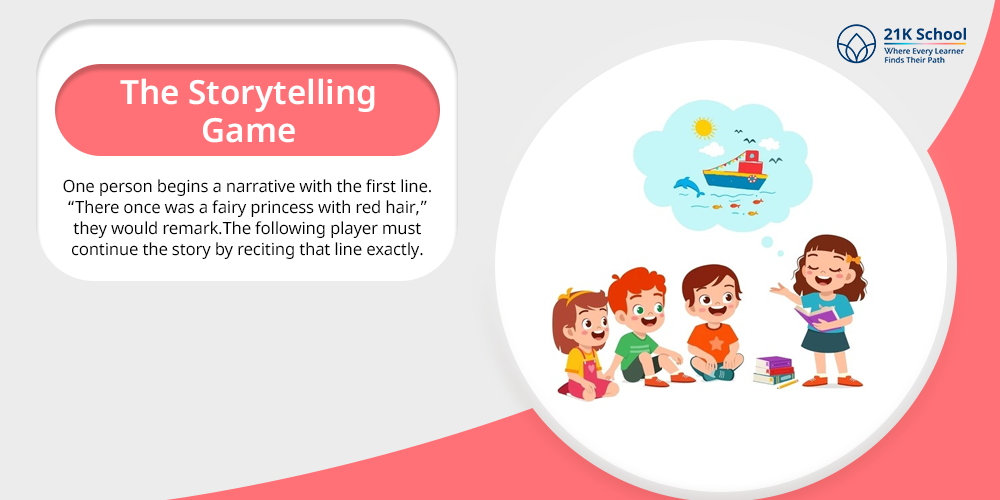
The memory train game and this game are pretty similar. As the game progresses, though, it becomes sophisticated. The storytelling game is, therefore, better suited for fourth- or fifth-graders.
- The players are seated in a circle.
- One person begins a narrative with the first line. “There once was a fairy princess with red hair,” they would remark.
- The following player must continue the story by reciting that line exactly. So, the following participant might say, “A fairy princess with red hair formerly resided there. She had a pink vehicle.”
7. Word List Matching Game
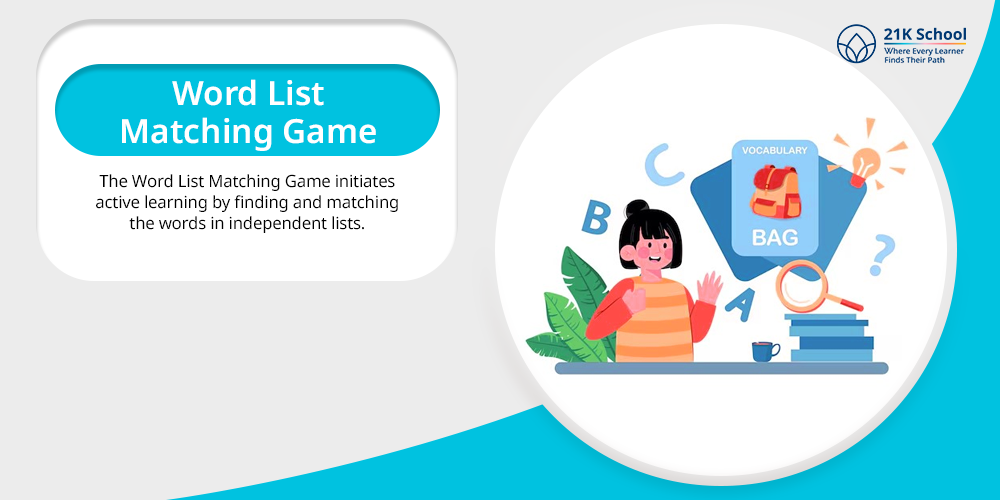
Memory games work nicely with word lists. Word lists encourage learning, which makes memories more active.
You may make a matching game out of postcards if you have a comprehensive list of new vocabulary.
8. The Memory Card Game
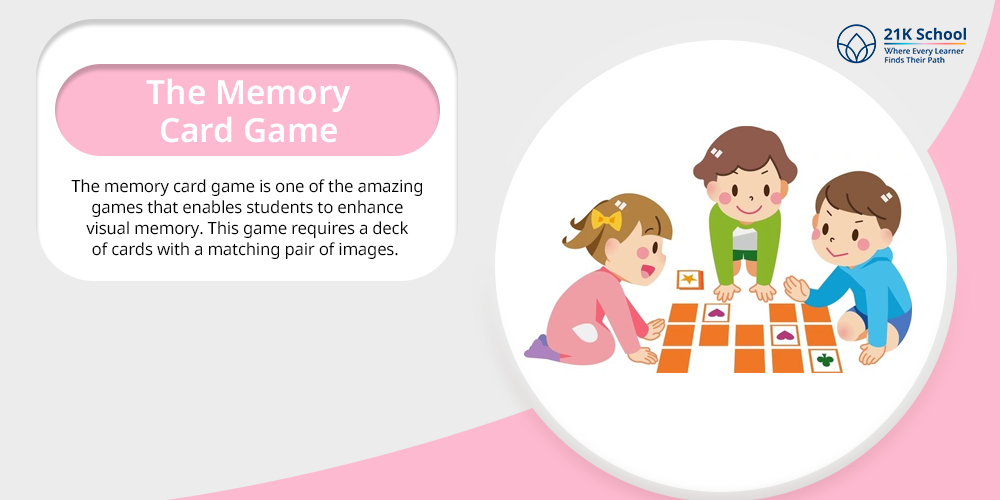
The memory card game is one of the amazing games that enables students to enhance visual memory. This game requires a deck of cards with a matching pair of images.
To find a matching pair of cards, players alternately flip two cards at a time. If a match is found, they take another turn and keep the cards. They turn them around if they don’t match.
9. The Magic Cup Game
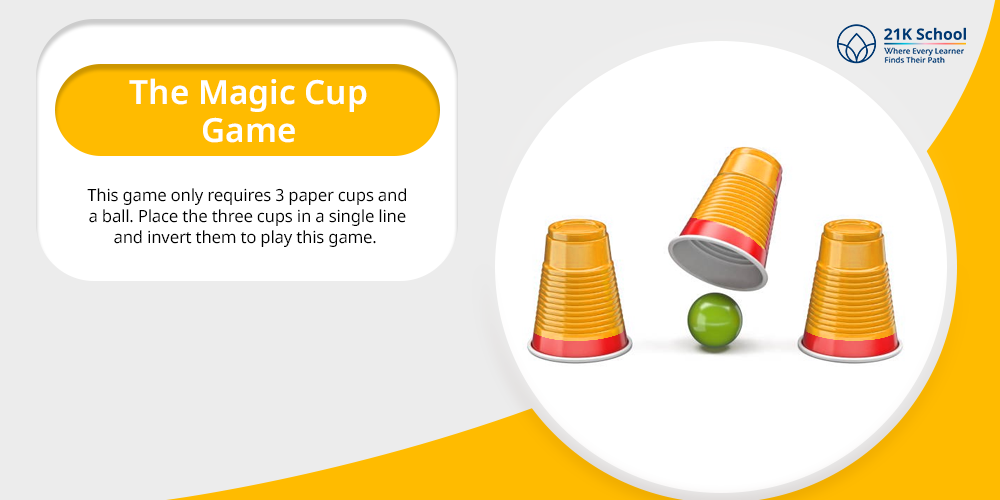
The Magic Cup Game is a fantastic memory game that helps students focus better. This game only requires 3 paper cups and a ball. Place the three cups in a single line and invert them to play this game.
After that, put one ball inside one cup. After moving the cups around for a while, pause and align them again. Determine which cup the coin belongs in. Whoever makes the correct decision wins.
10. Sound Chain Game
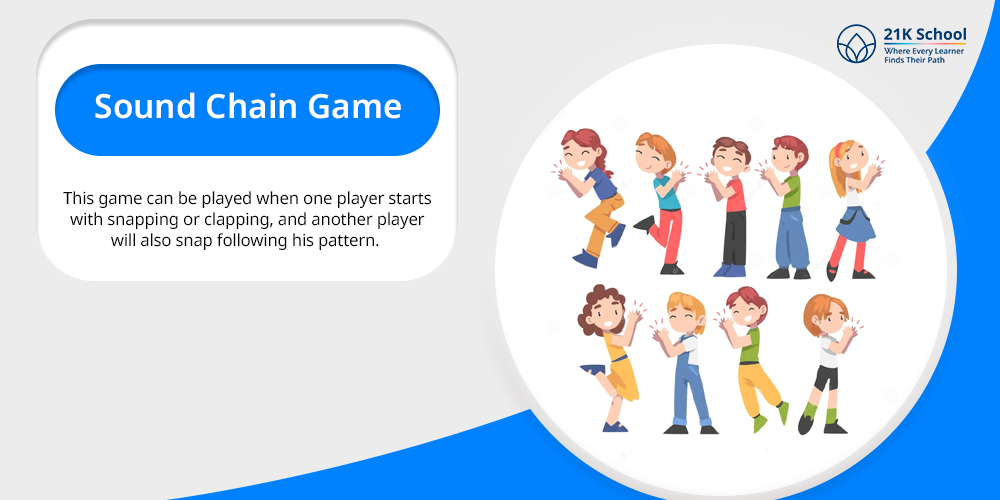
It is an incredible auditory game that enhances the listening skills and concentration abilities among students. This game can be played when one player starts with snapping or clapping, and another player will also snap following his pattern.
Every player can create their own pattern of sounds, and if any player fails to recognize the pattern, they may be disqualified from the game.
11. The Tray Game
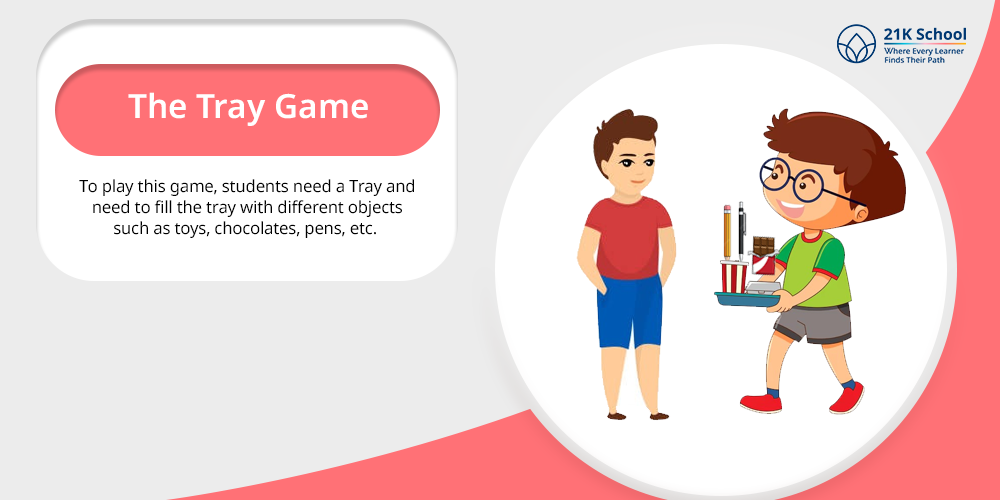
The Tray Game is an incredible party game where children can develop interpersonal skills. This is a simple game. To play this game, students need a Tray and need to fill the tray with different objects such as toys, chocolates, pens, etc.
Show this to your next player and ask them to memorise this and ask them to place all the things in the Tray.
12. Spot the Difference
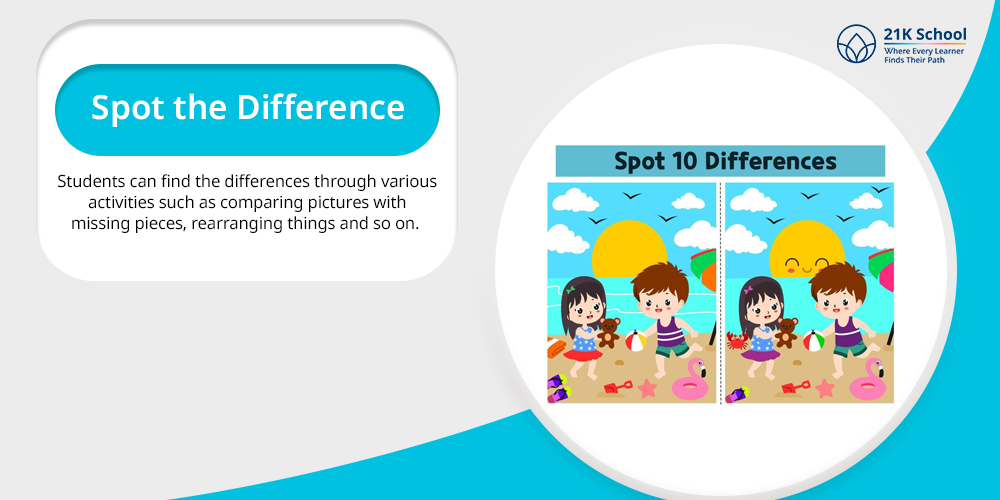
Spot the difference is a classic and simple game. This game enhances the attention and boosts the performance of the kids.
Students can find the differences through various activities such as comparing pictures with missing pieces, rearranging things and so on. In this game, a child has to find out what things are missing or what changes have been made.
13. Flash Card Game
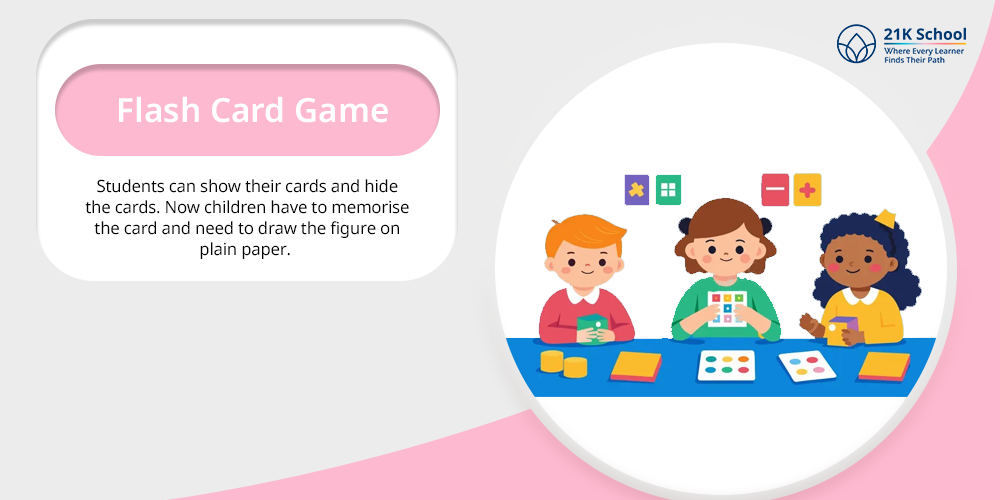
The flash card game is a classic party game; to play this game, children have to create a group, in which they have to play cards.
Flashcards are easily available in the market, even students can create their own by creating some designs on paper.
Students can show their cards and hide the cards. Now children have to memorise the card and need to draw the figure on plain paper. If kids draw the correct figure, then he/she wins the game.
14. Simon Says
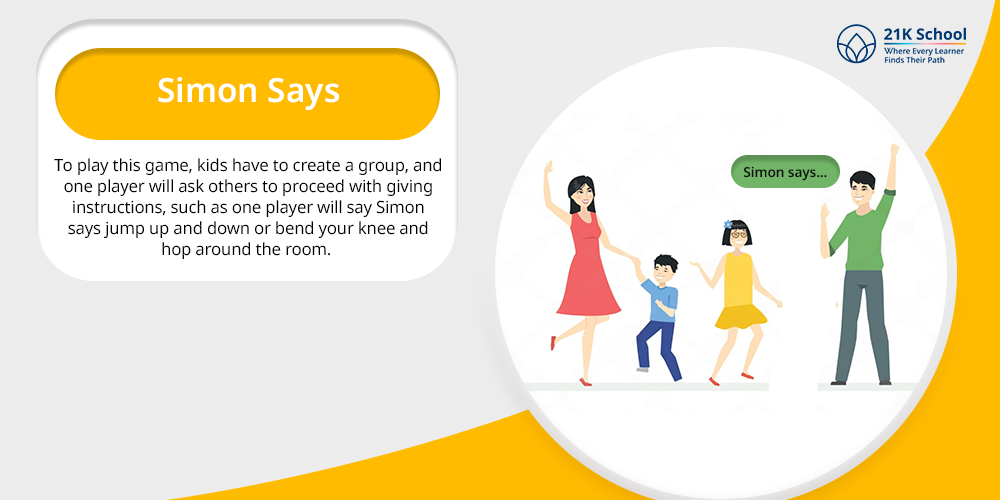
Simon says is a classic memory-based interesting game.
To play this game, kids have to create a group, and one player will ask others to proceed with giving instructions, such as one player will say Simon says jump up and down or bend your knee and hop around the room.
The players are only required to follow directions if Simon says comes before them. Players are eliminated if they perform an action that doesn’t start with Simon says.
15. Picture Bingo
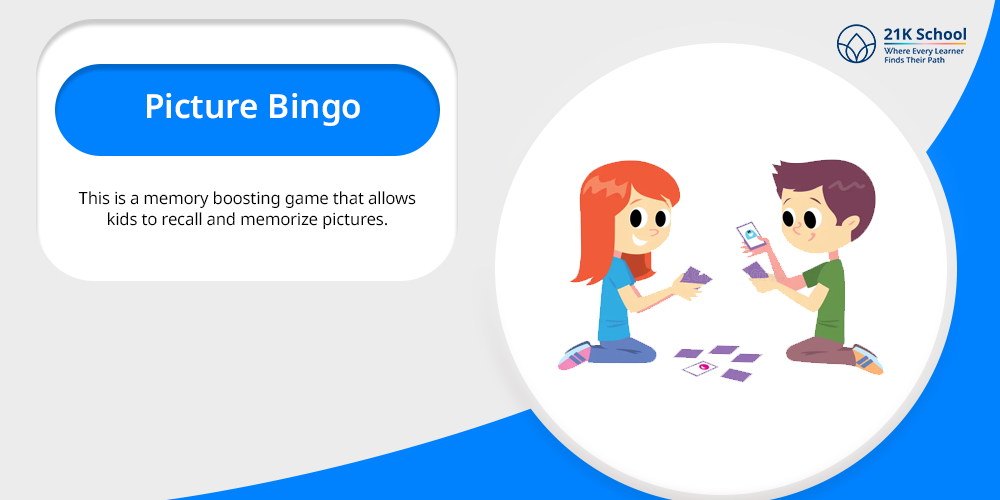
This is a memory boosting game that allows kids to recall and memorize pictures. This enhances a child’s visual ability and promotes self-directed learning. This game starts with choosing a baseboard.
The shuffled matching cards are laid out face down on a level surface. Each player chooses a card in turn.
If the image and the card match, they have a chance. In the event that they do not match the card is put back face down.
Conclusion
With these memory game activities, kids will enjoy exploring the limitless reaches of their brains. The more we use our brains, the stronger and more efficient they become.
Skill-based education is important as it allows students to excel academically and in the modern world. Wouldn’t it be wonderful to have an instant recall while learning some exclusive skills?


